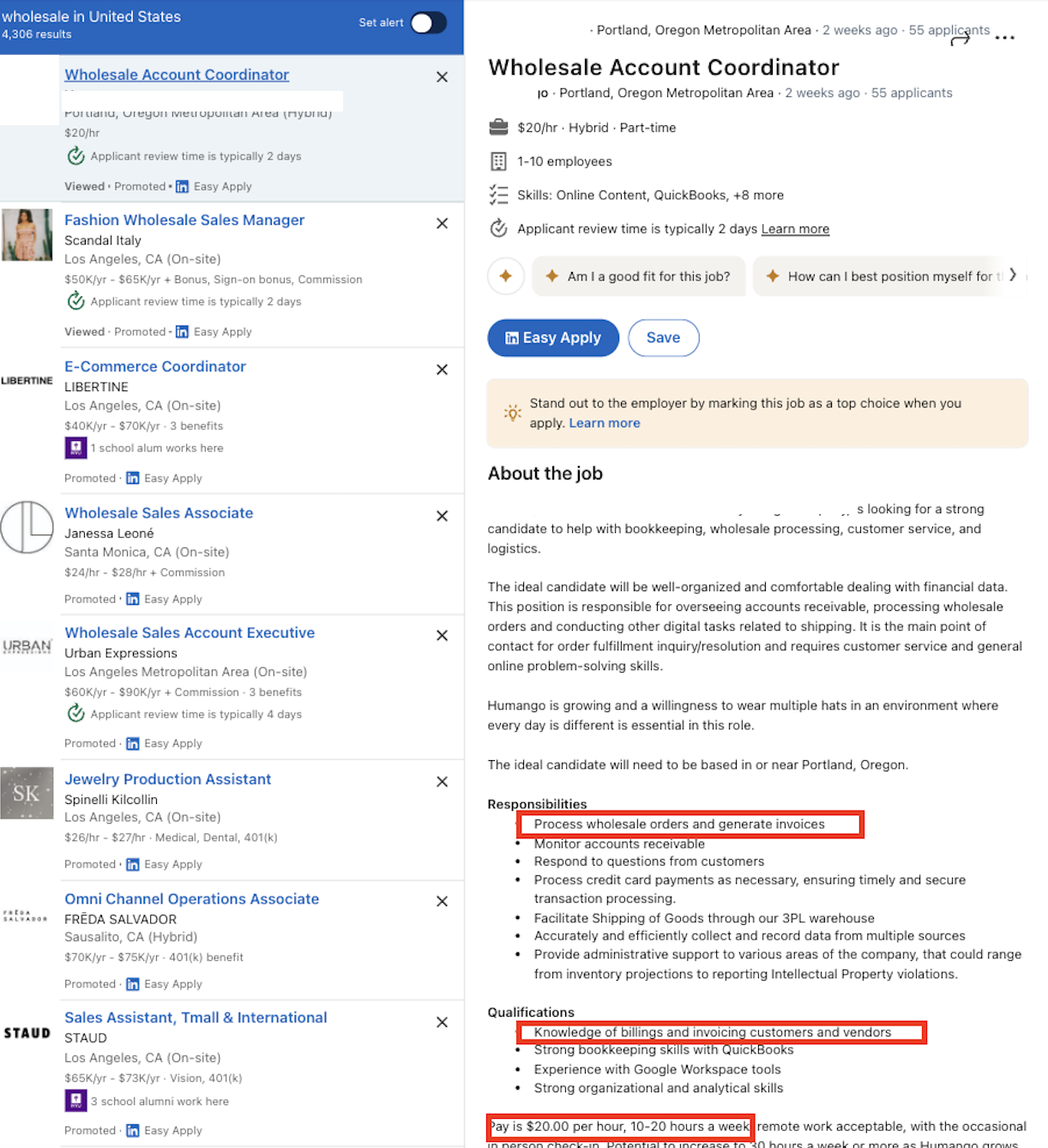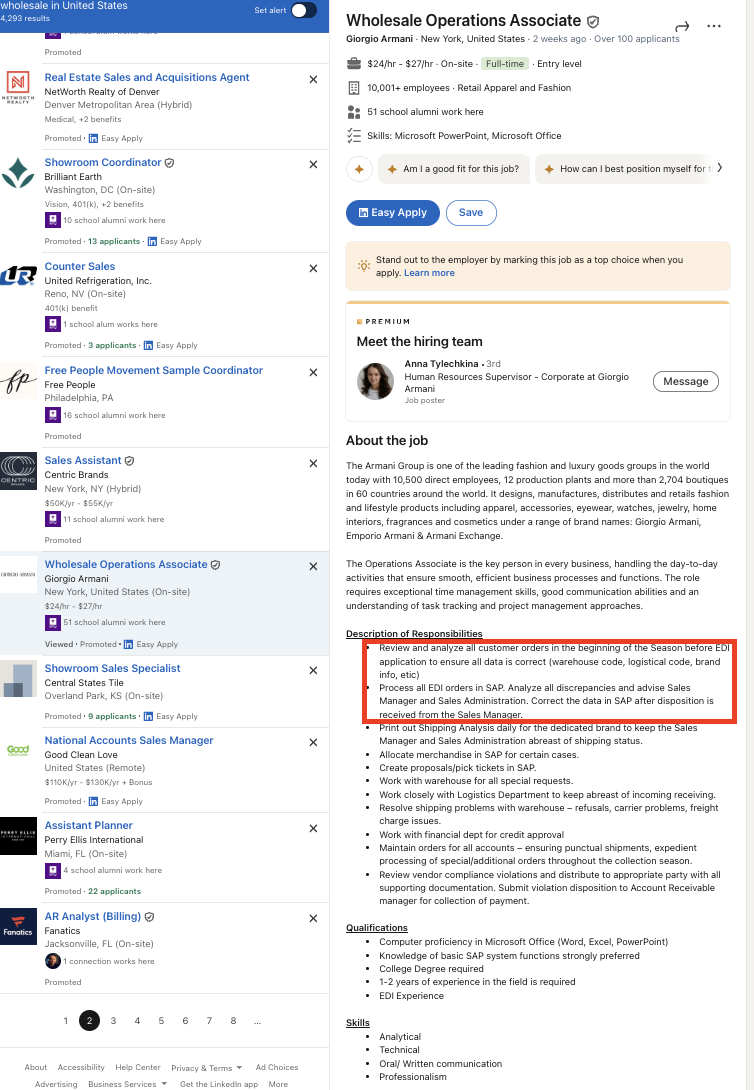How do people solve for wholesale data entry in the modern-age?
You’d probably guess that most is automated away, but it’s actually a lot more manual than you think.
Manual Data Entry Jobs
If you type in wholesale on LinkedIn and select Internship and Entry level, you’ll find approximately 4,306 job listings.

The most common descriptor next to the actual job will be “Coordinator” and the primary responsibility of their job will be to manage invoices.
This is the first job that popped up on LinkedIn once Wholesale was typed in:
Look at the information in the red box.

Responsibilities → Process wholesale orders and generate invoices is listed as the no.1 responsibility.
Qualifications → Knowledge of billings and invoicing customers and vendors is also listed as no.1.
Pay → $20/hr for 10 - 20 hrs per week with the potential to increase to 30 hours per week.
Essentially, this company is budgeting out for a FT contractor to manage their wholesale orders.
Is this a fluke?
Nope. Look at the next job…
International fashion brand Giorgio Armani is a multi-billion dollar brand that’s hiring for a Wholesale Operations Associate. Armani is paying $24- $27hr to review and analyze all customer orders to ensure all the data is correct and process all EDI orders in SAP.

Historically, managing wholesale orders has lacked a straightforward solution, prompting companies, like Giorgio Armani, to invest a minimum of $40,000 annually to hire at least one employee dedicated to this task. Of course, many companies get this cost down by going overseas and hiring offshore teams to do data entry, but this still doesn’t solve the company’s core problem - a lack of innovative operations.
By relying on manual, data-entry processes, the company tolerates and introduces inefficiencies and increases their reliance on outdated processes and legacy system, a well-recognized issue at corporate companies.
Ultimately, these legacy systems tend to fail, necessitating their replacement—a time-consuming and costly process.
The best way to get ahead of these breakdowns and ensure your organization stays agile by incorporating new technologies like AI that can automate the data entry process.
Want to learn more about how we can help? Talk to us by clicking here.